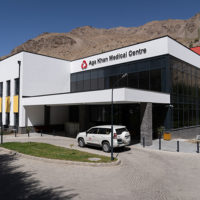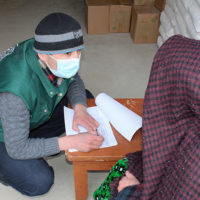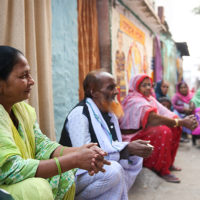In July of 2020, 103-year-old Aziz Abdul Alim tested positive for COVID-19. He was admitted to the recently established COVID-19 Emergency Response Center in Booni, Upper Chitral, Pakistan and received immediate treatment.
Aziz was discharged around two weeks later with no further symptoms.
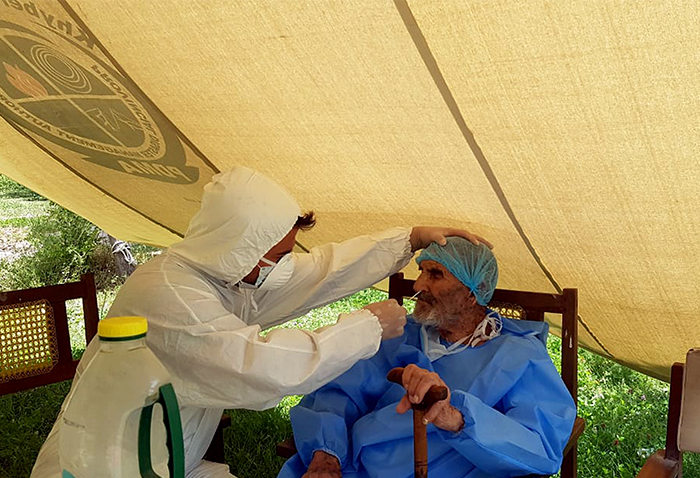
Aziz Abdul Alim was tested for COVID-19 before being admitted into the Emergency Response Center in Booni, Upper Chitral, Pakistan.
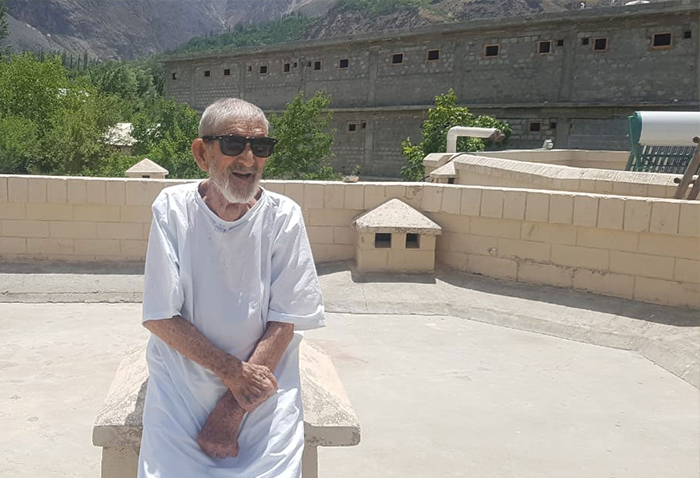
Aziz Abdul Alim sits on the rooftop of the Emergency Response Center as he recovers from COVID-19.
“We were so worried about my father’s poor health – we thought there was no hope of survival,” his son, Sohail, said. “When he was eventually discharged, my father was so excited. He greeted all the staff and management while leaving the response center and thanked everyone for taking care of him.”
Supporting Mountain Communities with Health Care
The Emergency Response Center that treated Aziz was one of six centers established by the Aga Khan Health Services in Pakistan (AKHS,P) in 2020 with support from European Civil Protection and Humanitarian Aid Operations (ECHO), Global Affairs Canada, and the Aga Khan Development Network. These centers are helping residents of Pakistan’s isolated mountainous communities access life-saving services during the pandemic.
“We treated Mr. Aziz as a high-risk patient given his advanced age and provided the appropriate medical care along with psychosocial and moral support – equally important during these distressing times,” said Miraj Uddin, AKHS,P’s Regional Head for Chitral.
Finding Hope in a Vaccine
After Aziz returned home, he still worried about contracting the coronavirus again. He was overjoyed to hear news of a vaccine that would help protect him. By the end of April 2021, Aziz received the second dose of the Sinopharm vaccine.
Aziz talked to NPR about receiving the vaccine and shared words of encouragement to others.
“When I heard about the vaccine, I was relieved. I wanted to benefit from it as soon as possible,” he said. “I feel alive again. My fear is gone.”
“My whole family is vaccinated,” Aziz continued. “I encourage everyone to take the vaccine.”
